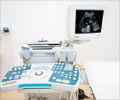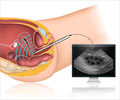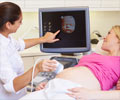Point-of-care ultrasound reduced the use of medications for blood pressure, the number of days on ventilation and proves to be cost-friendly.

TOP INSIGHT
Point-of-care ultrasound refers to the use of portable ultrasonography at a patient’s bedside for diagnostic and therapeutic purpose.
The POCUS treatment group in the study had significantly less total time on vasoactive agents and a trend toward improved outcomes in all other measured end points when compared with the control group. These trends persisted despite the POCUS group having higher severity of illness scores.
"The use of point-of-care ultrasound by intensive care clinicians continues to increase, and studies demonstrating improvements in patient outcomes are of great importance," said Daniel Mitchell, DO, lead study author. "In this study, decreased morbidity and calculated cost savings were very promising.
Source-Eurekalert
 MEDINDIA
MEDINDIA




 Email
Email









